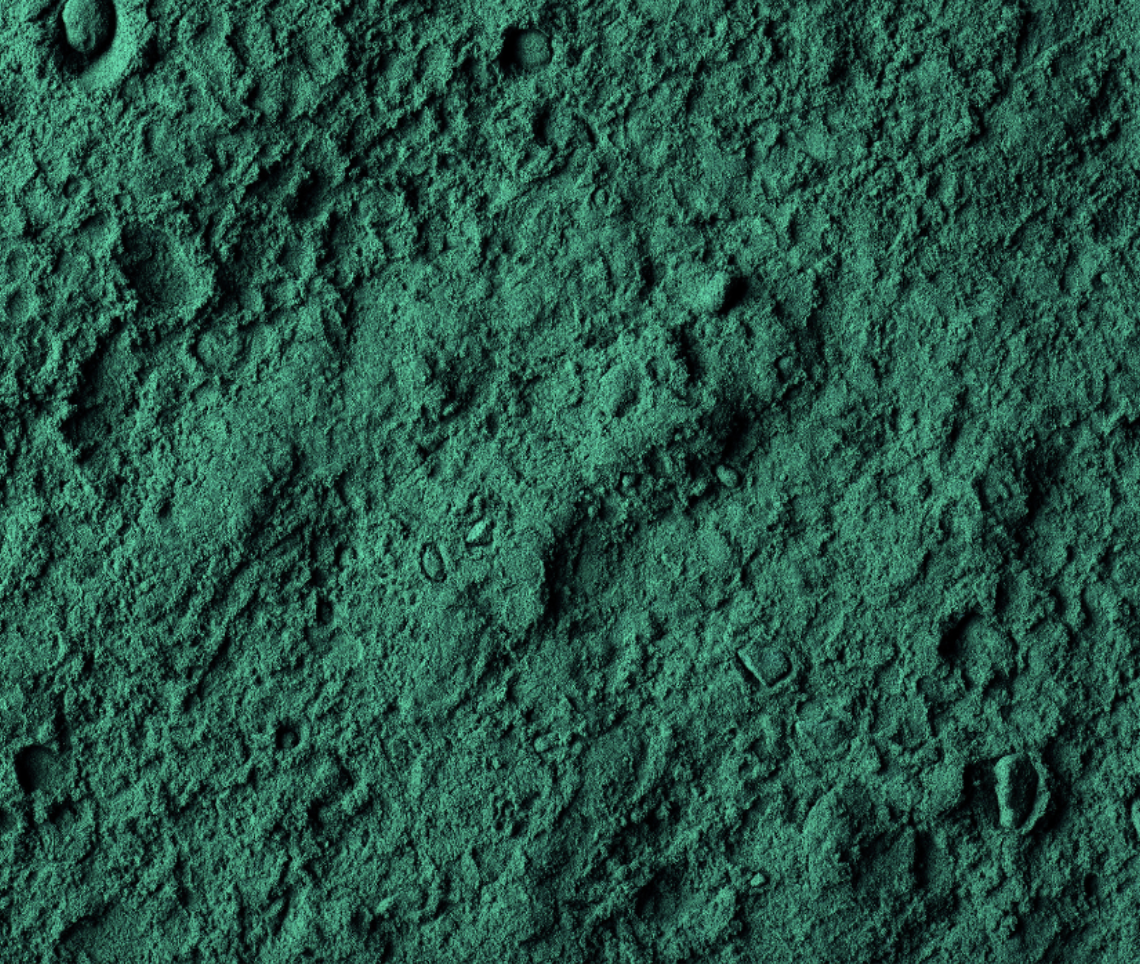Ashwagandha, or "Indian Ginseng," has been used for over 3,000 years in Ayurvedic medicine. As a powerful adaptogen, it supports the body's resilience against stress and promotes a balanced, energised state.
- Benefits:
- Adaptogenic: Helps calm the nervous system and improve sleep quality.
- Anti-inflammatory: Reduces joint inflammation and cortisol levels【Choudhary B, et al. 2015】.
- Cognitive Support: Boosts focus, memory, and reaction times【Ratto D, et al. 2016】.
- Nutritional Profile:
- Vitamins: Good source of Vitamin K.
- Minerals: High in Iron, Manganese, and Copper.
Hence Greens Dose: 166.67 mg
Black pepper, derived from the peppercorn plant, enhances the absorption of other nutrients, making it essential in Greens Stack for maximising the benefits of each ingredient.
- Benefits:
- Antioxidant: Neutralises free radicals.
- Bioavailability Enhancer: Increases nutrient absorption, especially for vitamins and antioxidants【Shoba G, et al. 1998】.
- Nutritional Profile:
- Vitamins: High in Vitamin K, E, and B.
- Minerals: Rich in Iron, Magnesium, and Manganese.
Hence Greens Dose: 6.67 mg
Sources:Shoba G, et al. (1998)
Broccoli sprouts contain high levels of sulforaphane, supporting immunity and gut health while providing strong antioxidant benefits.
- Benefits:
- Antioxidant: Enhances natural antioxidant enzymes【Fahey JW, et al. 2012】.
- Immune Support: Modulates immune responses and boosts NK cell production.
- Neuro-protective: Protects against oxidative stress, supporting cognitive health【Simon PW, et al. 2010】.
- Nutritional Profile:
- Vitamins: High in Vitamins C and A.
- Minerals: Good source of Calcium and Iron.
Hence Greens Dose: 166.67 mg
Sources:Fahey JW, et al. (2012)
Dang-Gui Buxue Tang combines Astragali Radix and Angelicae Sinensis Radix in a 5:1 ratio, used for centuries in Traditional Chinese Medicine to enhance blood health and Qi.
- Benefits:
- Anti-inflammatory: Regulates immune response and inflammation.
- Cardio-protective: Reduces oxidative stress on the heart.
- Cognitive Support: Protects the brain during low-oxygen situations, promoting nerve growth【Miranda MS, et al. 1998】.
Hence Greens Dose: 1666.67 mg per day
Sources:Miranda MS, et al. (1998)
Kale is rich in essential vitamins and antioxidants, making it a staple for supporting immune health, skin, and bone health in Greens Stack.
- Benefits:
- Anti-inflammatory: Fights oxidative damage and inflammation.
- Eye Health: Reduces risk of cataracts and macular degeneration【Simon PW, et al. 2010】.
- Nutritional Profile:
- Vitamins: High in Vitamins A, C, E, and K.
- Minerals: Source of Manganese, Selenium, and Zinc.
Hence Greens Dose: 666.67 mg
Sources:Simon PW, et al. (2010)
Maca root, originating from Peru, supports resilience against stress and enhances physical and mental endurance.
- Benefits:
- Adaptogenic: Reduces stress and enhances stamina.
- Aphrodisiac: Improves libido and sexual health.
- Bone Health: Increases bone mineral density【Gonzales GF, et al. 2008】.
- Nutritional Profile:
- Vitamins: High in Vitamin C, B1, B2, and B6.
- Minerals: Rich in Copper, Iron, Potassium, and Manganese.
Hence Greens Dose: 500 mg
Sources:Gonzales GF, et al. (2008)
Matcha, a concentrated green tea powder, provides high levels of L-theanine and antioxidants, supporting calm, focused energy.
- Benefits:
- Antioxidant: Neutralises free radicals and detoxifies the body【Moorhead, K., et al. 2005】.
- Energy Boost: Creates a balanced "alert calm" due to the combination of caffeine and L-theanine.
- Nutritional Profile:
- Vitamins: Source of Vitamin A.
- Minerals: Contains Iron, Magnesium, Zinc, and Selenium.
Hence Greens Dose: 1666.67 mg
Sources:Moorhead, K., et al. (2005)
Moringa, derived from the leaves of Moringa oleifera, is often called the "miracle tree" due to its rich nutritional profile and therapeutic potential.
- Benefits:
- Anti-Aging: Supports healthy ageing by positively impacting hormones and reducing oxidative stress, especially during menopause【Fuglie LJ, et al. 2001】.
- Anti-Microbial: Contains antibacterial and antifungal agents.
- Liver Support: Reduces liver inflammation, supporting detoxification.
- Nutritional Highlights:
- Vitamins: High in Vitamins A and C, and B3.
- Minerals: Excellent source of bioavailable Calcium and Potassium.
Hence Greens Dose: 166.67 mg
Sources:Fuglie LJ, et al. (2001)
Spinach is loaded with vitamins, antioxidants, and phytochemicals, supporting immunity, bone health, and cognitive function.
- Benefits:
- Anti-inflammatory: Protects against oxidative damage.
- Appetite Control: Promotes satiety, aiding in weight management【Park, M., et al. 2008】.
- Nutritional Profile:
- Vitamins: Rich in Vitamins A, C, E, and K.
- Minerals: Good source of Selenium, Zinc, and Manganese.
Hence Greens Dose: 333.33 mg
Sources:Park, M., et al. (2008)
Spirulina is a blue-green algae with potent antioxidant and anti-inflammatory properties, supporting immune function, detoxification, and gut health.
- Benefits:
- Detoxification: Aids in heavy metal removal.
- Neuro-protective: Reduces plaque build-up and protects nerve cells【Zhang H, et al. 2013】.
- Nutritional Profile:
- Vitamins: High in B Vitamins and Vitamin K.
- Minerals: Rich in Copper and Iron.
- Fats & Phytochemicals: Contains Omega-3, Omega-6, and pigment phycocyanin.
Hence Greens Dose: 2426.67 mg
Sources:Zhang H, et al. (2013)
Lion’s Mane, a distinctive white mushroom scientifically known as Hericium erinaceus, is revered for its potent neuroprotective and cognitive-enhancing properties. Known for its unique, shaggy appearance, it’s a critical component in Hence Greens for those seeking sustained mental clarity, focus, and cognitive health.
- Scientifically Established Benefits:
- Cognitive Enhancement: Stimulates the production of Nerve Growth Factor (NGF), essential for the growth, maintenance, and survival of neurons, promoting memory and concentration【Mori K, et al. 2009】.
- Neuroprotective: Reduces neuroinflammation and oxidative stress, protecting against cognitive decline and supporting long-term brain health【Saitsu K, et al. 2018】.
- Mood Support: Reduces symptoms of anxiety and depression by positively influencing neuroplasticity and brain chemistry【Nagano M, et al. 2010】.
- Immune Support: Contains bioactive compounds that modulate the immune response, enhancing immune function and defence mechanisms【Li G, et al. 2018】.
- Nutritional Highlights:
- Vitamins: Contains a variety of B vitamins, supporting energy production and brain function.
- Minerals: Good source of Potassium and Iron.
- Antioxidants: Rich in polysaccharides and erinacines, which are linked to Lion’s Mane’s neuroprotective and immune-modulating effects.
Hence Greens Dose: 1000 mg
Sources:
- Mori K, et al. (2009). "Effects of Hericium erinaceus on brain function and mood." PubMed
- Saitsu K, et al. (2018). "Protective effects of Lion’s Mane on neurodegeneration." PubMed
- Nagano M, et al. (2010). "Anti-anxiety and anti-depression properties of Lion's Mane." PubMed
Li G, et al. (2018). "Immunomodulatory effects of Hericium erinaceus polysaccharides." PubMed
Turmeric, derived from the root of the Curcuma longa plant, has been used for centuries in Ayurvedic and traditional medicine for its powerful anti-inflammatory and antioxidant properties. The active compound, curcumin, is known for supporting joint health, recovery, and overall well-being.
- Scientifically Established Benefits:
- Anti-inflammatory: Curcumin inhibits enzymes involved in inflammation, including COX-2, which reduces pain and swelling. This makes it a popular natural remedy for joint health and recovery【Chainani-Wu, N. 2003】.
- Antioxidant: Curcumin is a powerful free radical scavenger, reducing oxidative damage at the cellular level and protecting the body from chronic diseases related to oxidative stress【Menon VP, et al. 2001】.
- Cardiovascular Support: Curcumin can improve endothelial function, lower blood pressure, and reduce the risk of heart disease by reducing plaque buildup【Gupta SC, et al. 2013】.
- Cognitive Support: Emerging research suggests that turmeric may support memory and reduce symptoms of anxiety and depression by promoting brain-derived neurotrophic factor (BDNF)【Small GW, et al. 2018】.
- Immune Boost: Curcumin modulates immune response, helping the body respond effectively to pathogens and inflammation【Aggarwal BB, et al. 2007】.
- Nutritional Highlights:
- Phytochemicals: Contains curcuminoids (curcumin, demethoxycurcumin, and bisdemethoxycurcumin), responsible for its health-promoting properties.
- Antioxidants: Rich in natural antioxidants, supporting overall cellular health.
Hence Greens Dose: 166.67 mg
Sources:
- Chainani-Wu, N. (2003). "Safety and anti-inflammatory activity of curcumin: a component of turmeric (Curcuma longa)." PubMed
- Menon VP, Sudheer AR. (2001). "Antioxidant and anti-inflammatory properties of curcumin." PubMed
- Gupta SC, et al. (2013). "Curcumin, a component of turmeric: From farm to pharmacy." PubMed
- Small GW, et al. (2018). "Memory and brain health benefits of curcumin in turmeric." PubMed

